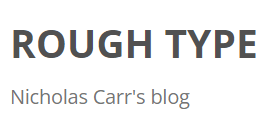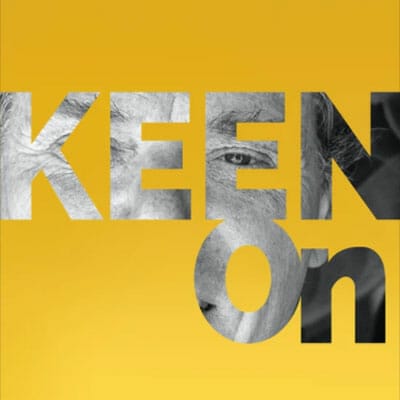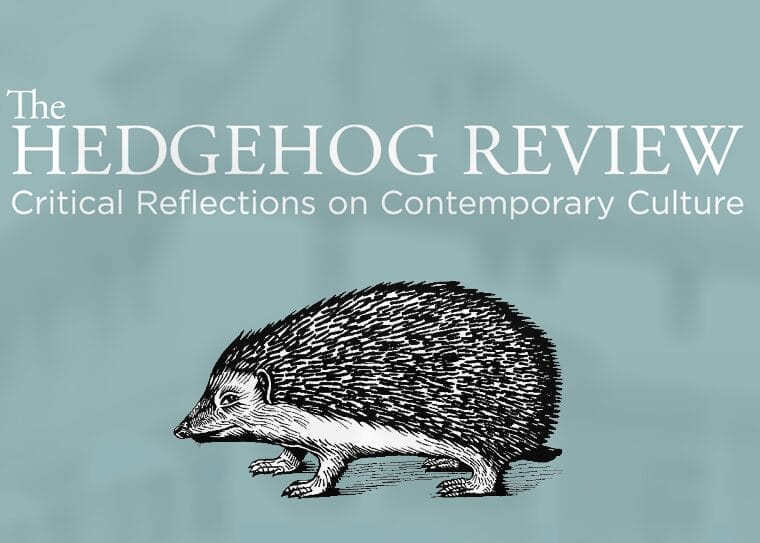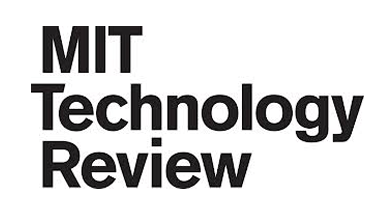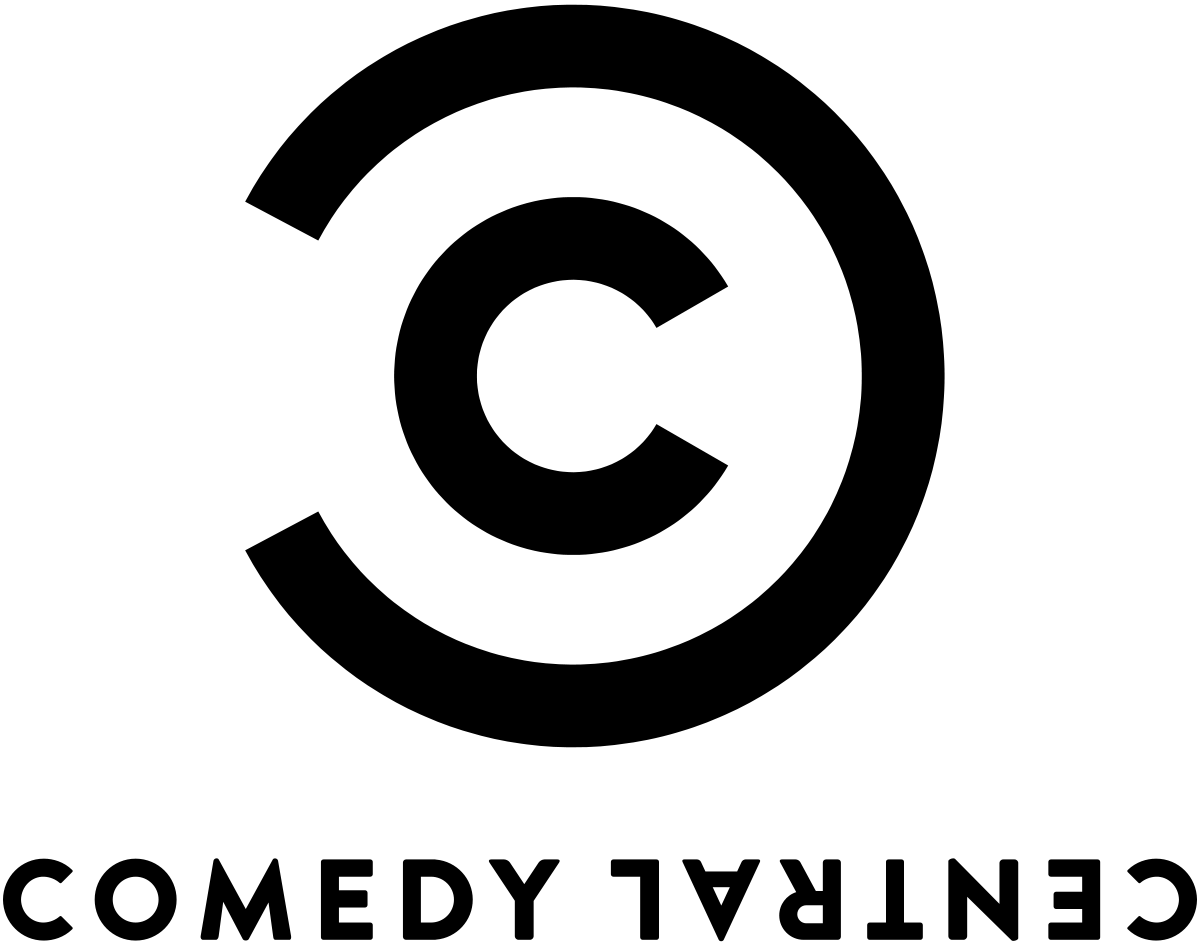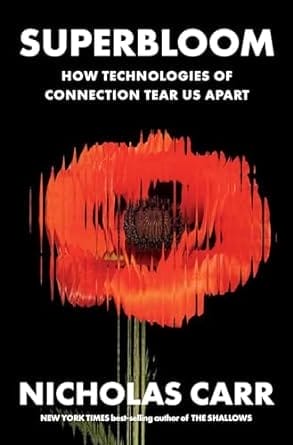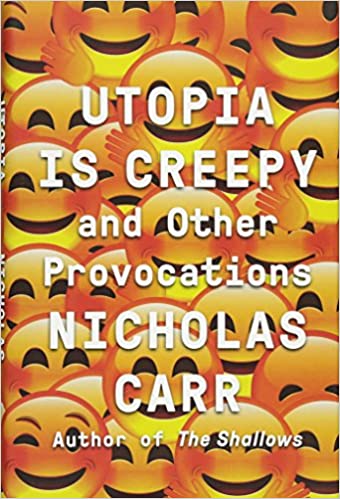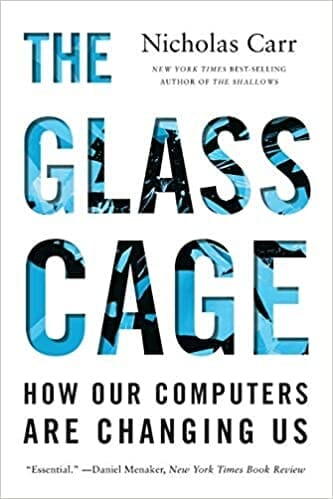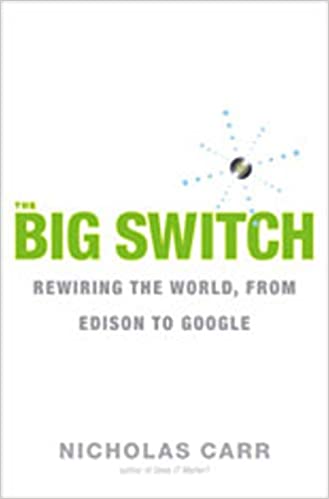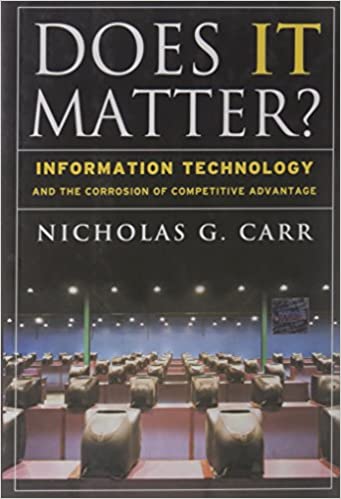Videos
Learn More About Nicholas Carr
Communication today would have looked like magic less than 50 years ago – we’re now able to interact instantly with nearly everybody at once thanks to modern technology. We want to believe that more communication is always better, but have these breakthroughs actually caused more harm than good?
According to sociologist, researcher and New York Times bestselling author Nicholas Carr, today’s superabundance of messages breeds misunderstanding rather than understanding, strife rather than harmony.
“We as humanity have made an error that we’ve been largely unaware of,” explains Carr, author of “Superbloom: How Technologies of Connection Tear Us Apart” (W.W. Norton & Company, January 2025). “We’ve come to apply the goals and measures of industrialization to very human activities like how we communicate with one another.”
Through his acclaimed presentations, Carr provides insightful, surprising analyses, backed up with compelling stories drawn from the worlds of history, psychology, and philosophy. Audiences gain provocative new ways of thinking about how a different future could be achieved by both avoiding past mistakes, and supporting creative ways of addressing the problems that stem from how humans use technology.
How Technologies Meant to Help Us Communicate Actually Drive Us Apart
A theme he has been writing about for nearly two decades, Carr’s first in the unofficial trilogy of books on technology and society is the New York Times bestseller “The Shallows: What the Internet is Doing to Our Brains” (2011, updated in 2020), a Pulitzer Prize finalist, followed by 2015’s “The Glass Cage: How Our Computers Are Changing Us,” and “Superbloom.”
A former executive editor at Harvard Business Review, Carr has observed and dissected how technology, particularly social media, artificial intelligence and automation, can undermine our ability to think critically, retain knowledge, perform tasks and make decisions. As an educator, advisor and speaker, he challenges audiences to consider the ever-increasing importance of reclaiming our brains to gain more control of our lives at work, at home and in society.
“When we constrict our capacity for reasoning and recall or transfer those skills to a gadget, we sacrifice our ability to turn information into knowledge,” Carr writes in his Wall Street Journal essay, “How Smartphones Hijack Our Minds.” “We get the data but lose the meaning. Upgrading our gadgets won’t solve the problem. We need to give our minds more room to think.”
With potential guardrails like frictional design intended to force us to slow down and rethink if speed in communication really is the best solution, he discusses how parallel techniques are applied in the physical world.
“Think of speed bumps on a road, they’re used to slow traffic down for greater safety,” explains Carr. “Similarly, a waiting period on publishing a social media post could give the poster time to reconsider their words or to read an article rather than sharing it based on a knee-jerk reaction to the headline alone.”
The Future of Work: Balancing the Human + AI Equation
For decades, technology has been helping humans perform tasks, taking the drudgery out of work, enhancing productivity and, in some cases, eliminating the need for people to be involved at all.
Carr points out, though, automation also has a dark side. When pursued rashly, it can undermine human performance, erode the subtlest of human talents and put an organization’s future at risk. Drawing on years of research, he explains how automation is reshaping work in every sector, including professional and white-collar jobs long considered the special preserve of humans, and provides some best practices for leaders seeking to ensure automation is a benefit, not a detriment to employees.
“Computers aren’t taking away all the jobs done by talented people. But computers are changing the way the work gets done,” Carr writes in The Wall Street Journal. “The evidence is mounting that the same de-skilling effect that ate into the talents of factory workers last century is starting to gnaw away at professional skills, even highly specialized ones.”
With a witty, thought-provoking style, Carr makes one of today’s most pressing societal and business challenges understandable and relevant to any audience, encouraging decision makers across sectors to think critically about the future of work, the future of technology, and the future of humanity.
###
Nicholas Carr is the New York times bestselling author of “The Shallows” and former executive editor for the Harvard Business Review. His work has been published in The Atlantic, The Wall Street Journal, The New York Times, Wired, Nature, MIT Technology Review and other publications. His essays, including “Is Google Making Us Stupid?” and “The Great Forgetting,” have been collected in several anthologies, such as “The Best American Science and Nature Writing,” “The Best Spiritual Writing” and “The Best Technology Writing.”
Carr served as a member of the Encyclopedia Britannica’s editorial board of advisors, was on the steering board of the World Economic Forum’s cloud computing project and was a writer-in-residence at the University of California at Berkeley’s journalism school. In 2015, he received the Neil Postman Award for Career Achievement in Public Intellectual Activity from the Media Ecology Association. He has appeared on a wide range of radio and television programs, including NPR’s All Things Considered and OnPoint, the PBS NewsHour, MSNBC’s Morning Joe, CBS Sunday Morning and The Colbert Report.
Carr is currently a visiting professor of sociology at Williams College and holds a B.A. from Dartmouth College as well as an M.A. in English, and American Literature and Language from Harvard University.
Nicholas Carr is available to advise your organization via virtual and in-person consulting meetings, interactive workshops and customized keynotes through the exclusive representation of Stern Speakers & Advisors, a division of Stern Strategy Group®.
How Technologies Meant to Help Us Communicate Actually Drive Us Apart
Communication today would have looked like magic less than 50 years ago – we’re now able to communicate instantly with nearly everybody at once thanks to modern technology. We want to believe that more communication is always better, but have these breakthroughs actually caused more harm than good? According to acclaimed author, sociologist and researcher Nicholas Carr, today’s superabundance of messages breeds misunderstanding rather than understanding, strife rather than harmony. In this eye-opening presentation, Carr draws on his latest book, “Superbloom: How Technologies of Connection Tear Us Apart,” to show why, starting as far back as the telegraph, humans have struggled to put controls on the speed of communication. Examining why instant communication appeals to our deepest instincts even as it undermines social relationships, Carr gives attendees a new lens for viewing how technology impacts how we talk to each other and how we see the world. Audiences will gain new insight into the importance of thoughtful messaging and how potential guardrails such as frictional design can force us to slow down and consider if speed and efficiency in communication really is the best solution.
Take Part in Shaping a More Constructive Digital Future
Today we can communicate with a speed that’s never been seen before. Whether it’s sending a message to your colleague in the office next door or to a group of executives at the company headquarters on the other side of the world, is being able to instantly message at scale more harmful than helpful? According to award-winning author, sociologist and researcher Nicholas Carr, today’s overreliance on technologies like social media and AI undermines our ability to think critically and communicate clearly. In this revealing presentation, Carr draws on his acclaimed books, “The Shallows: What the Internet Is Doing to Our Brains,” “The Glass Cage: How Our Computers Are Changing Us,” and “Superbloom: How Technologies of Connection Tear Us Apart” (2025), to provide both historical context and modern lessons about how digital technologies, especially media, have hampered our thinking and communication skills. By better understanding the unanticipated effects of the never-before-seen efficiency of how we interact, audiences will be empowered to help shape a more constructive digital future where in-person collaboration is still a prominent feature.
The Future of Work: Balancing the Human + AI Equation
For decades, technology has been helping humans perform tasks, taking the drudgery out of work, enhancing productivity and, in some cases, eliminating the need for people to be involved at all. But automation has a dark side. When pursued rashly, it can undermine human performance, erode the subtlest of human talents and put an organization’s future at risk. During this thought-provoking presentation, New York Times bestselling author and former Harvard Business Review executive editor Nicholas Carr – author of “The Shallows” and the Wall Street Journal essay “Automation Makes Us Dumb” – encourages organizational leaders to pause before offloading too many tasks to robots and AI. Drawing on decades of research, he explains how automation is reshaping work in every sector, including professional and white-collar jobs long considered the special preserve of humans. He will explore automation’s hidden and sometimes disastrous psychological effects. And he will lay out a practical new approach to the design of automation systems that ensures we get the best out of people as well as machines.
What is Digital Technology Really Doing to Our Brains?
Is technology rotting our brains and is it too late to do anything about it? In this fascinating presentation, New York Times bestselling author Nicholas Carr examines the intellectual and social consequences of smartphones, social media and the internet in general. Drawing on a rich array of scientific evidence, Carr explains how our devotion to screens is taking a profound toll on our analytical and problem-solving skills, our ability to think deeply and creatively, and even our social and emotional lives. He explores how organizations can sabotage themselves when they require ceaseless screen time and device-monitoring. Weaving insights from his bestselling books on the intersection of tech and sociology, as well his Wall Street Journal essay, “How Smartphones Hijack Our Minds,” Carr helps participants re-think their technology habits. Audiences will be empowered to become more conscious and productive people at work and at home, allowing them to set a course toward a different and better future.
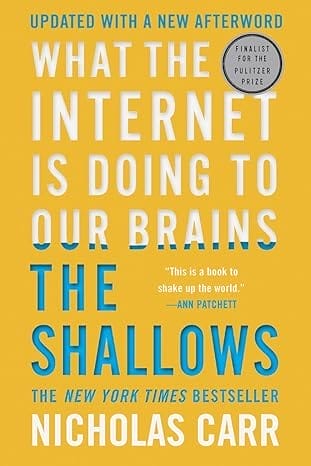
The Shallows: What the Internet Is Doing to Our Brains
(W. W. Norton & Company; Updated edition, March 2020)
“The Spanish Council of Psychology, the leader of psychology in the Ibero-American world, held its annual conference (virtually) on November 14, 2020 featuring well-known author and lecturer Nicholas Carr who spoke about the mind and social networks. His inclusion on the list of speakers for our conference was without a doubt the main incentive to register and participate in the conference and was a large part of the conference’s success.”









